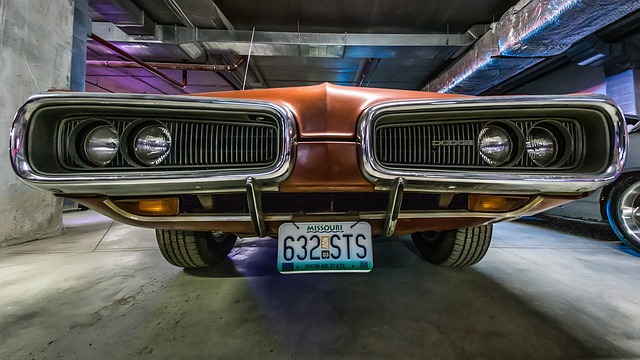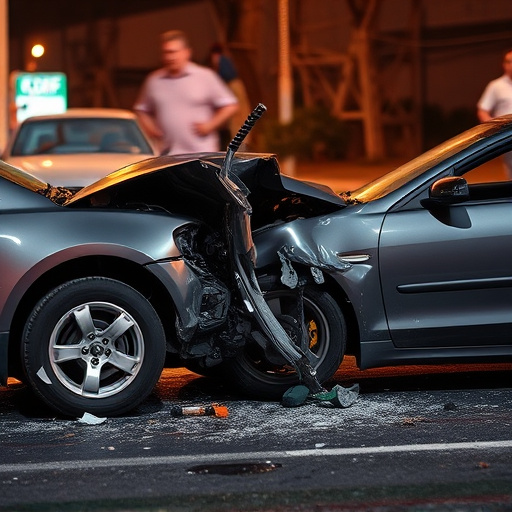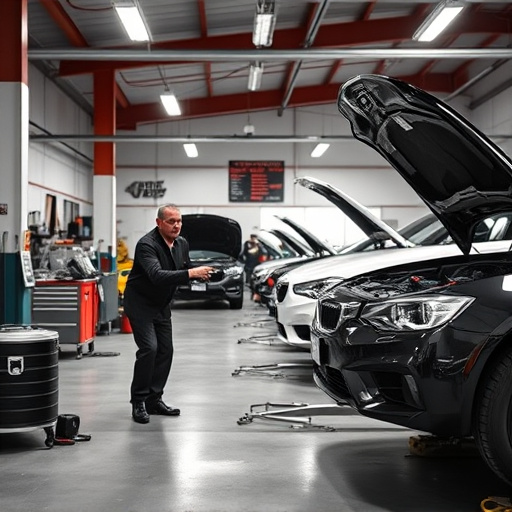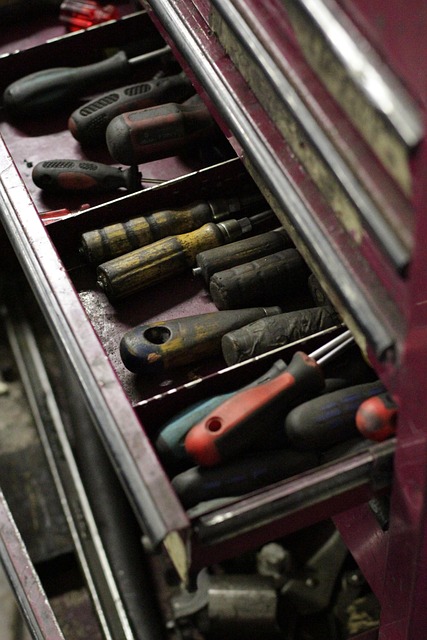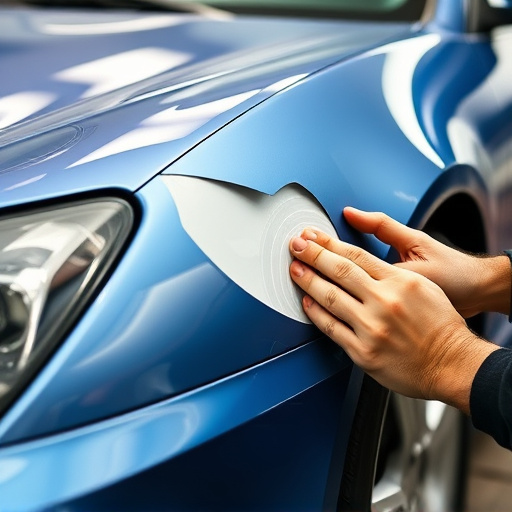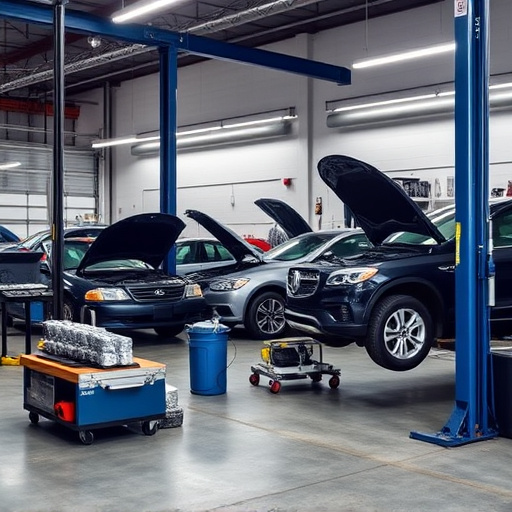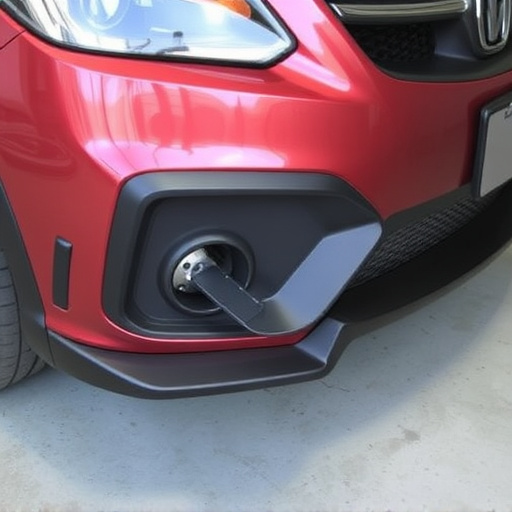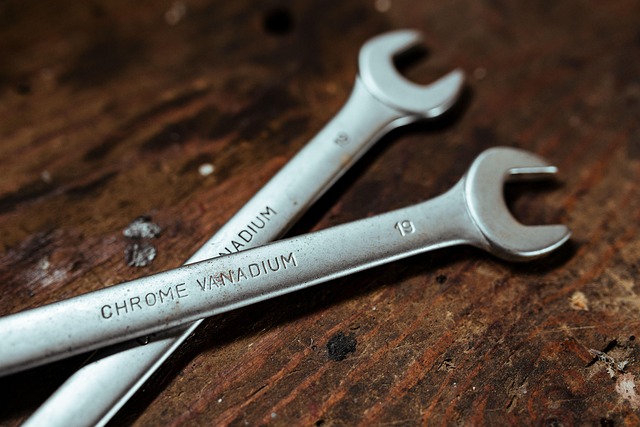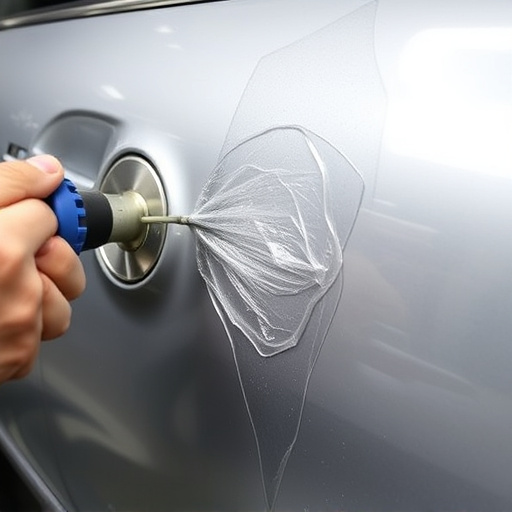Mercedes impact sensor calibration is crucial for enhancing vehicle safety by accurately detecting and interpreting pre-crash signals. Proper calibration ensures swift deployment of safety features and effective autobody repairs post-accident, using specialized equipment to meet performance benchmarks and verify sensor accuracy. Regular calibration protects occupants, mitigates crash impacts, and fine-tunes sensitivity for optimal driving conditions.
Mercedes’ advanced impact sensors play a critical role in enhancing vehicle safety by detecting and interpreting pre-crash signals. This article delves into the intricate functionality of these sensors and explores the meticulous calibration process essential for their optimal performance. Through proper calibration, Mercedes impact sensors ensure accurate data collection, leading to more effective collision avoidance systems and enhanced passenger safety. Learn how this process benefits the automotive industry and contributes to safer driving experiences.
- Understanding Mercedes Impact Sensor Functionality
- Calibration Process: Ensuring Accurate Pre-Crash Data
- Benefits of Proper Impact Sensor Calibration for Safety
Understanding Mercedes Impact Sensor Functionality

The Mercedes impact sensor is a sophisticated device designed to detect and interpret pre-crash signals, playing a pivotal role in enhancing vehicle safety. This advanced technology is integral to the car’s collision avoidance systems, enabling it to anticipate and respond to potential accidents. When a sudden impact or force is detected, the sensor swiftly conveys this information to the vehicle’s control units, triggering necessary safety measures such as automatic braking or active body control.
Proper Mercedes impact sensor calibration is paramount to ensure accurate signal interpretation. Regular calibration at a reputable collision repair center checks and adjusts the sensor’s sensitivity, ensuring it responds appropriately to various driving conditions. This process aligns with the sensor’s intricate task of distinguishing between normal road vibrations and actual collision events, thereby optimizing the vehicle’s safety features, including crucial autobody repairs and auto painting interventions post-accident.
Calibration Process: Ensuring Accurate Pre-Crash Data

Mercedes impact sensor calibration is a meticulous process designed to ensure accurate interpretation of pre-crash data. It involves adjusting and fine-tuning sensors within the vehicle’s safety systems to respond consistently and precisely to potential collision scenarios. This rigorous procedure leverages advanced tools and techniques to verify that the sensors accurately detect and relay critical information, enabling faster and more effective deployment of safety measures.
The process begins with a thorough inspection of the impact sensors, followed by precise adjustments using specialized equipment. Each sensor is calibrated to meet specific performance benchmarks, ensuring they can reliably distinguish between minor bumps and serious crashes. This meticulous attention to detail is vital, as accurate pre-crash signal interpretation can significantly enhance the effectiveness of safety features like airbags, seatbelts, and brake assistance systems in an auto collision center or automotive body shop.
Benefits of Proper Impact Sensor Calibration for Safety

Proper Mercedes impact sensor calibration is paramount for enhancing vehicle safety. When accurately calibrated, these sensors can swiftly and reliably detect collisions, triggering appropriate safety measures to protect occupants. This early warning system plays a crucial role in mitigating crash impacts, reducing the risk of severe injuries or fatalities.
Regular calibration ensures that the sensors interpret pre-crash signals accurately, enabling the vehicle’s advanced safety systems to respond promptly. Moreover, it helps in fine-tuning the sensor’s sensitivity, ensuring optimal performance across various driving conditions, from minor fender benders to high-speed collisions. Maintaining proper impact sensor calibration is an essential aspect of tire services and auto body repair, as it safeguards not just the car’s bodywork but also the well-being of its occupants.
Mercedes impact sensor calibration is a critical process that ensures the safety and effectiveness of pre-crash signal interpretation. By accurately calibrating these sensors, Mercedes vehicles can better anticipate and respond to potential collisions, enhancing overall safety for all occupants. Proper calibration not only improves collision avoidance systems but also reinforces the reliability of data collected during accidents, which is vital for post-incident investigations and insurance claims. Thus, regular impact sensor calibration is a game-changer in automotive safety technology.
